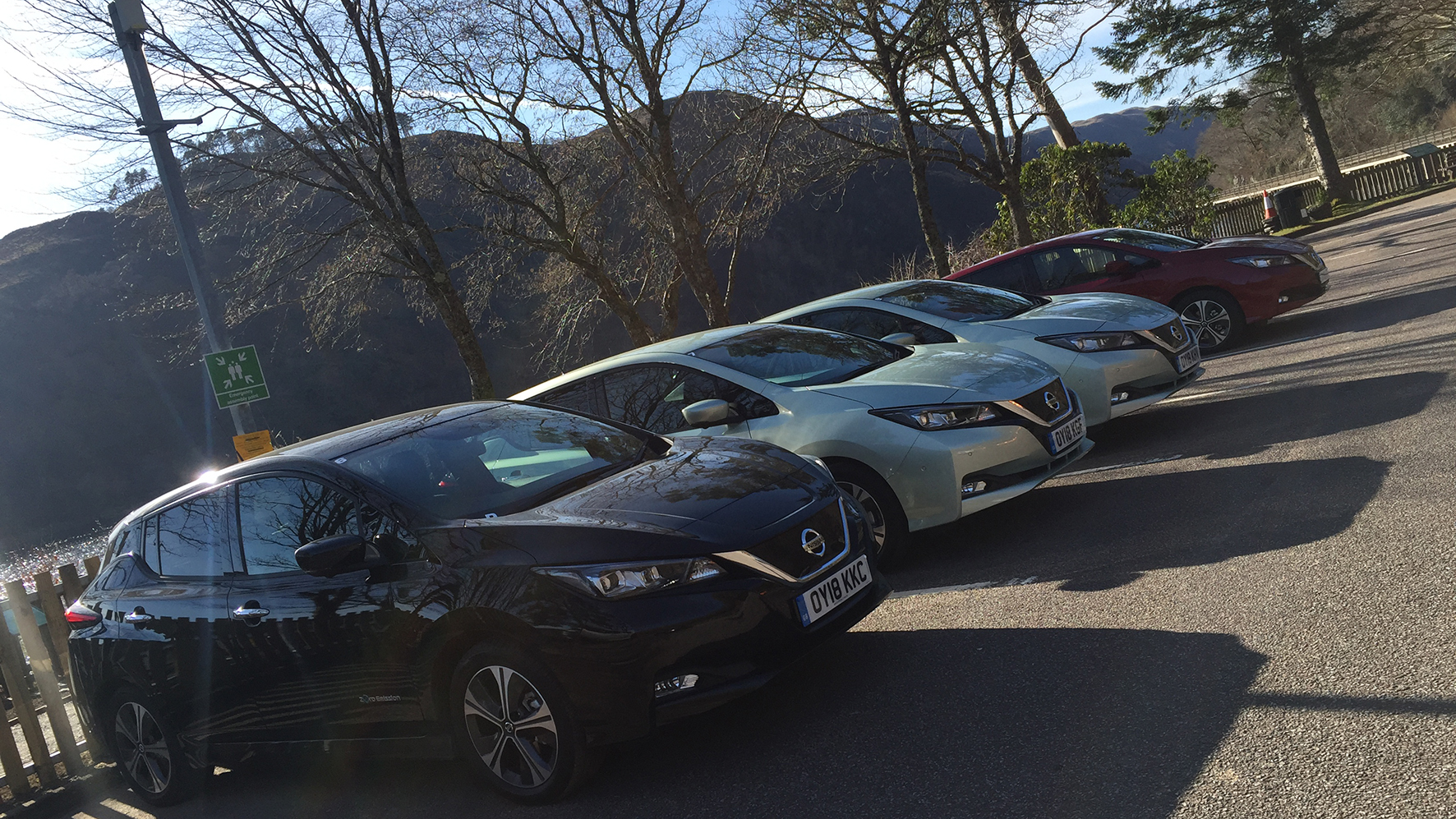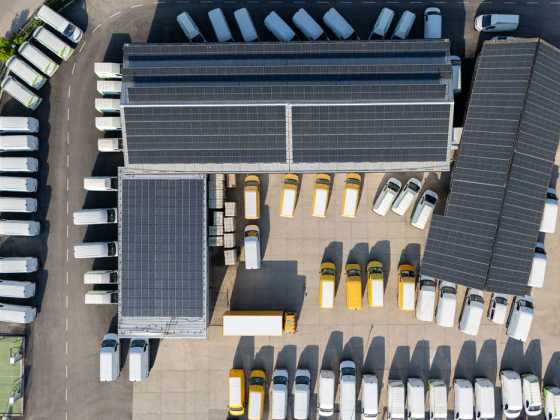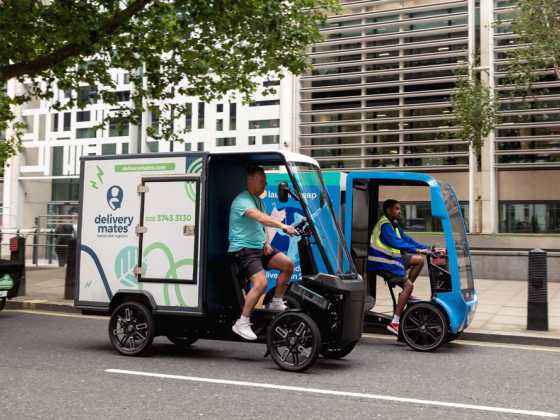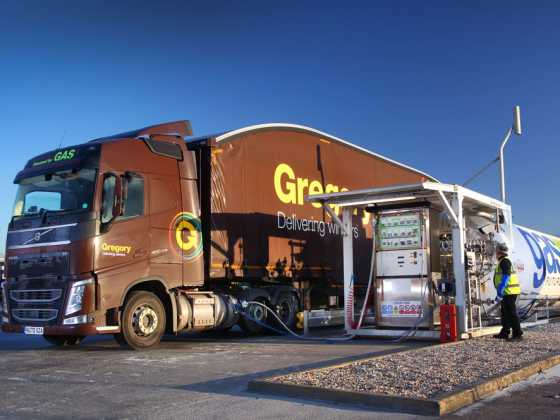Making greener purchases

The new Vehicle Purchase agreement from the Crown Commercial Service broadens the scope of the existing framework and makes it easier to buy zero and ultra-low emission vehicles for public sector use, explains Kim Harrison
The government is committed to helping reduce our carbon emissions and has confirmed its ambition to see at least half of new cars to be ultra low emission by 2030. With so many government, local authority and wider public sector vehicles serving the UK public in so many ways, it was only right that when Crown Commercial Service (CCS) was considering the future of vehicle procurement, that green options were easily accessible for our customers.
The Vehicle Purchase framework makes selecting the right electric vehicle (EV) or ultra low emission vehicle (ULEV) easy and empowers public sector customers to make greener choices. CCS is committed to helping its customers make decisions which are more environmentally friendly and ecologically responsible.
CCS Vehicle Purchase background
The new Vehicle Purchase agreement was launched in December 2018. This builds on the existing agreement, by broadening the scope to promote innovative new vehicle solutions, whilst still offering great savings.
Through CCS, fleet managers/procurers across the public sector have access to a fleet offering that covers a wide range of agreements for the whole vehicle life cycle. Vehicle Purchase is an integral part of the CCS fleet offering. Vehicle Purchase brings together the collective buying power of public sector customers with their procurement expertise, which means CCS can help the public sector get the best commercial fleet deals in the interests of stakeholders as well as taxpayers.
Over the last four years there has been a high level of demand for vehicles including police cars, ambulances, local authority street scene and public service delivery vehicles. With this kind of demand, it was paramount that whilst developing the new Vehicle Purchase framework, we considered how these vehicles were bought in the future. Coupled with the governmental pressures on reducing emissions, it was important we provided a simple and easy to use way to buy electric and ultra low emission vehicles.
Development
As with the development of any go to market strategy, extensive stakeholder engagement is critical. This gives access to a wide range of knowledge and experience which ensures that all opportunities have been explored.
As such CCS took advantage of its role in two cross-governmental working groups dedicated to transportation issues. The first was the Defra-led team, which established the Government Buying Standards for Transport (mandatory for central government, best practice for wider public sector). It includes environmental and other responsible procurement of vehicles, including safety.
We also worked with the OLEV-led (Office for Low Emission Vehicles) group for the Government Fleet Commitment, which announced in the Autumn statement in November 2017 to “commit to electrify 25 per cent of cars in central government department fleets by 2022”.
With the benefit of this collective knowledge, the decision was taken to deliberately not separate out the purchase of electric and ultra low vehicles into a distinct Lot. This allows the natural development of suppliers, bringing to the market (and therefore the framework) any new, innovative and alternatively fuelled vehicles, when they can. Any information about new vehicles and changes to what can be bought, are shared on the Fleet Portal with customers to ensure they are prepared for these changes.
Additionally the rationalisation of the lotting structure maximises competition – the number of suppliers has increased from 41 to 48, which in turn, makes more vehicle types available including those specialist vehicles for local authority fleet operators.
The Portal
The new agreement is supported by the newly refreshed CCS Fleet Portal. This allows customers to view everything available in the market, including alternatively fueled vehicles and gives access to online quotations with enhanced search. This includes the ability to filter results based on any requirements and compare vehicles. The system makes a vast amount of technical and pricing information simple to search for, allowing customers to search by the criteria which is important to them, such as fuel train, safety rating, vehicle size, and so.
The site gives access to live quotes from all of the 12 CCS lease providers, ensuring competitive, current pricing and the ability to direct award. The buyer is able to access a full breakdown of costs, allowing for comparison between manufacturers, the buy vs. lease prices and whole life costs for vehicles. All of this can now be accessed via a few simple steps.
A holistic approach
It is important organisations committed to using greener vehicles establish an infrastructure to support their decision. Expert services may be required and a holistic approach across the business including support from the estates and fleet teams, HR and finance is very important.
CCS is working on a Smart Cities programme to bring together all contractual requirements for customers to move towards electrification. A ‘smart city’ is a place where the traditional networks and services are made more efficient with the use of digital and telecommunication technologies and will be essential to the broader adoption of green vehicles.
Smart city considerations include transport technology products, solutions and professional services, including sustainable transport infrastructure and a dynamic catalogue for commodity products.
For vehicles, the Smart Cities programme considers full availability of alternatively fuelled vehicles, including pure electric vehicles and other ultra low emission vehicles. It also considers buy, lease or hire vehicles; fleet management services; option for post-production conversions; and vehicle telematic solutions.
One of the biggest challenges in the current market is the limited level of competition to drive best value. Additionally once a vehicle is selected, lead times for vehicles are currently taking longer than for traditional vehicles.
Benefits of the agreement
The strategy behind the agreement was to make all vehicle brands on offer within the UK available for purchase.
The agreement allows suppliers to bring to market any new products or vehicles they develop during the course of the framework agreement, for example, if they introduce a new model to the UK market, that model can then be sold through the Vehicle Purchase agreement. This allows suppliers to offer the latest technology, as soon as it is available, such as electric and ultra low emission vehicles.
Alongside this, suppliers have the ability to offer all of their standard production vehicles and any options, along with any conversions or additional modifications they would like to provide.
The scope of the agreement has been widened to include a greater range of specialist vehicles, such as street cleaning and refuse collection vehicles. There are now more suppliers for LCVs and HGVs which supports these specialist vehicles and gives greater choice.
Customers are also able to go on to lease vehicles, but enjoy the benefit of the Vehicle Purchase agreement discounts. i.e. our CCS leasing companies are able to source the vehicles on behalf of the customer at the discounted prices we’ve negotiated with the manufacturers, passing the full benefit through in best value leases.
Benefits for the buyer
The benefits for the procurer include more suppliers; there are 48 suppliers in the new agreement, which is eight more than previously.
There are blue light lots where we’ve rationalised down to two lots and increased the number of suppliers to support competition, range, availability and best value.
Buyers can also benefit from savings; when we compare our buying power with those of a similar scale (being the leasing companies), on average our discounts are 11.3 per cent greater than those which similar sized suppliers can achieve.
For your next vehicle procurement perhaps you will consider the Fleet Portal and will find out for yourself what alternatively fueled vehicles and CCS can do to help your organisation make a greener choice. Working together we can make a real difference in putting the UK at the forefront of a global revolution in motoring and help to deliver cleaner air, a better environment and a strong clean economy.
Kim Harrison is the category lead for fleet at the Crown Commercial Service






